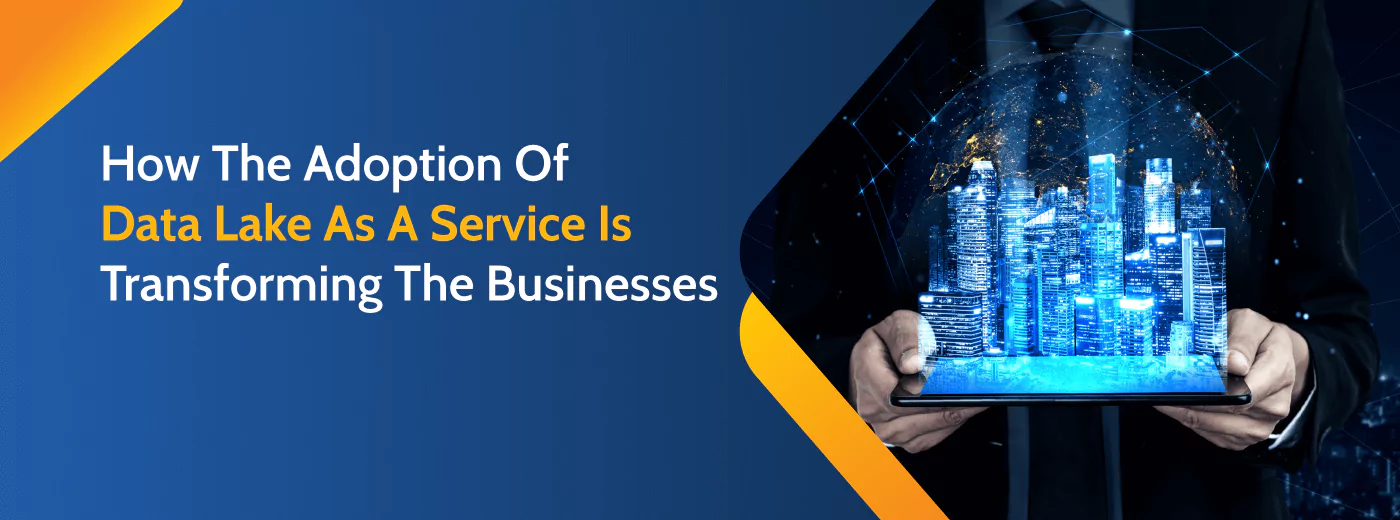Increases in computer-processing power, cloud-storage capacity and usage, and network connectivity, are turning the current flood of data in most organizations into a tidal wave. An endless flow of detailed information about customers’ profiles, sales data, product specifications, process steps, and more.
The data comes in all formats and from a range of sources such as - IoT devices, sales systems, social media sites, etc. Despite an increase in the technologies designed to ease the storage, collection, and assessment of significant business information, many organizations are still unsure how best to handle these data. That’s where Data Lakes comes into the picture, which helps to create a centralized place management infrastructure that gives every organization to manage, store, analyze and classify their data.
What Is A Data Lake?
Simply put, a data lake is a repository for large varieties and quantities of both structured and unstructured data. James Dixon, CTO of Pentaho coined the term data lake. It provides scalable storage to handle a growing amount of data and provides agility to deliver insights faster. It can store securely any type of data regardless of volume or format with an unlimited capacity to scale and provides a faster way to analyze datasets than traditional methods.
Need For A Data Lake
It has been observed that organizations are generating business value from their data, outperforming their peers. According to the Aberdeen survey, the organization that implemented Data Lakes outperformed similar companies by almost 9% in organic revenue growth.
These organizations performed new types of analytics, such as machine learning over log files, social media, and internet-connected devices stored in the data lake. This has enabled businesses to identify and implement opportunities, helping companies to grow faster, specifically, in terms of productivity, attracting and retaining customers, making informed decisions and more.
In the present scenario, every organization wants to leverage the benefits of analytics for better decision making and business growth. Organizations consist of numerous departments, and every department has disparate needs corresponding to the data. The data can be further analyzed according to the needs to make business-related decisions. That's where "Data Lake as a Service" comes into the picture.
Data Lake As A Service
“Data Lake-as-a-Service" is a platform that leverages cloud resources, which are maintained and managed by a vendor "as a service." It's often beneficial to deploy data lakes in the cloud because of easy scalability for large data volumes, inexpensive storage as big raw data is increasingly generated in the cloud from sources like sensors, mobile apps or social media.
It is a cloud service that hides the complexity of the underlying platform and infrastructure layers. The platform enables anyone in the organization to create a data lake without the requirement of installing or maintaining the technology on their own by leveraging the advantages of data analytics. It also provides enterprise big data processing in the cloud for faster and efficient business outcomes in a cost-effective way.
Get enterprise big data processing in the cloud for faster and efficient business outcomes in a cost-effective way.
Some Business Benefits Of Data Lake As A Service
1. It integrates with and expands the current enterprise data warehouse (EDW).
2. It frees you from all the issues of buying new hardware and purchasing expensive licenses.
3. Removes the barriers by separating all enterprise data and giving businesses the ability to bring all their siloed data together.
4. Self-service analytics and visualization platform.
5. It provides a prebuilt cloud service that abstracts the complexity of the underlying platform and infrastructure layers, so organizations can use these services without having to install or maintain the technology themselves.
6. Provides a single, unified view of all data across the organization and the flexibility to access data in a variety of ways.
Some Typical Use Cases
1. Numerous organizations use a Data Lake-as-a-Service to collect and process incoming raw data from the sources such as - mobile, cloud, or some other external sources. For instance, manufacturers collect sensor data, so that research and development teams can collate specific information about product usage, operational issues, and error patterns.
2. Many organizations create "data pipelines" where they collect raw data in a Data Lake-as-a-Service, then filter, cleanse, or query the data to create a valuable subset, which they move into another analytic environment such as a data mart in the cloud or a data warehouse on-premises.
3. Organizations utilize Data Lake-as-a-Service to integrate large volumes of data for analytics and data science. It is often beneficial to have all data in one place, where it can be queried, combined, and analyzed to discover new insights and patterns.
Run different types of analytics—from dashboards and visualizations to big data processing, real-time analytics, and machine learning to guide better decisions.
Conclusion
Data lakes are essential for numerous business reasons. In a nutshell, the primary causes can be summarized as reducing the cost of storage, increasing storage capacity, storing a wide variety of data types, scaling multiple data types, lowering risks for data management across the enterprise.
Having Data Lake as a service in place organizations can streamline and experiment with their data in a more easy way.
At Polestar solutions, we deliver data lake as a service and other enterprise cloud computing solutions that have a strict adherence to all the security and privacy measures to safeguard your data.
Follow and connect with us on Twitter, Facebook, Linkedin



